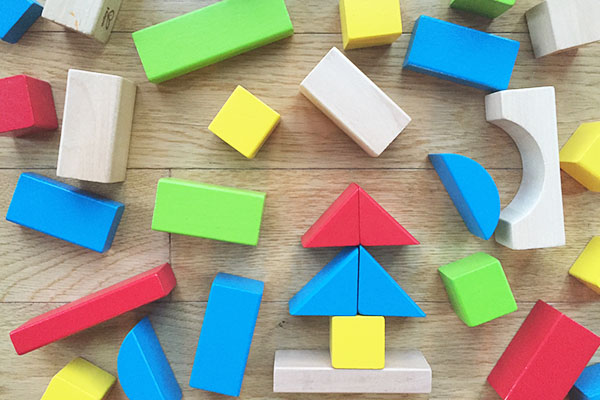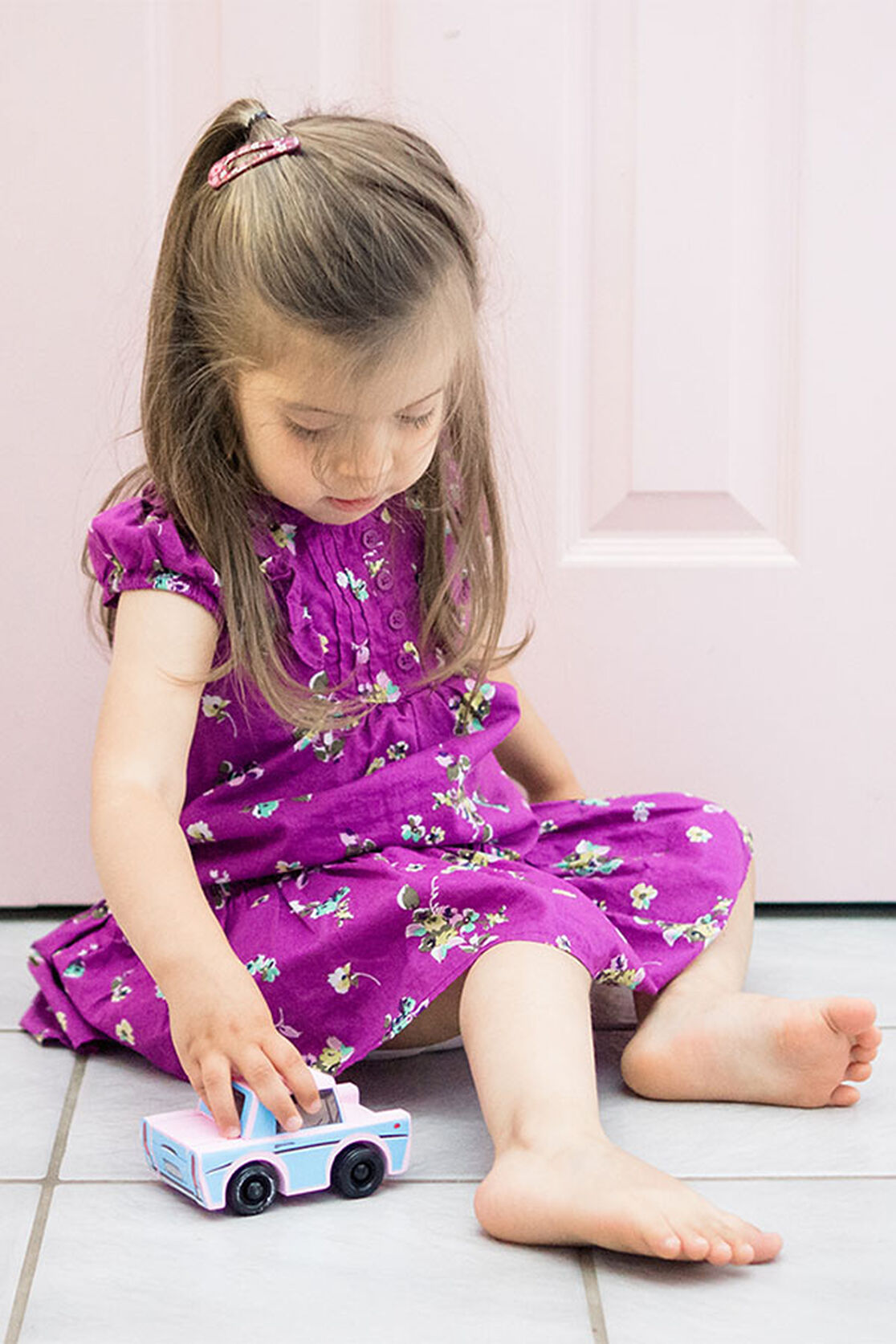I’ve always preached that simple toys and a simple environment make smarter kids. The more a toy does, the less a child does. Kid powered, not battery operated. Less really is more.
Have you had that moment when you look at your living room and it’s a playroom explosion? Have your Pinterest living room color palettes somehow became infested with multi-colored playmats, bouncers, and flashing light toys that completely compromised the relaxing sanctuary you once created? And maybe regardless of the purging you did six months prior, it seems that there’s never enough closet, shelf, or floor space for all of baby’s things?
I can relate. We live in a two bedroom apartment. As a speech-language pathologist and play enthusiast, I wanted to create a nurturing and fun environment for my baby to learn too. Luckily, watching our baby grow in a small space, wasn’t nearly as tough as I thought.
Children learn through play.
Play is their job. As parents, it’s our job to choose the right toys and the right places to help them explore, inspect, create, and question everything around them.
Simple Toys
Blocks have been around for decades; and all of our kids have them. A child who has mastered blocks knows how to hold them, how to make them sound, and how to manipulate them in many ways. They know that blocks can be stacked, lined up, pushed, banged together, and create not just a tower… but a train, a snake, a car, or whatever their imagination chooses.

Now that is big thinking for a little brain! Simple toys allow for this creativity to take place.
The best simple toys are the ones you already have… tupperware and wooden spoons, cardboard boxes, paper towel rolls, couch cushions. Your child can create kitchens, cars, castles, microphones and mountains and build a pretend world in your living room.
You might be thinking, “But my child will get bored with simple toys.” Think again! Studies show that children that learn through repetition, or doing the same thing again and again, actually have faster processing skills and stronger connections in their brain.
“We are what we repeatedly do. Excellence, then, is not an act, but a habit.” ~Aristotle
Simple Environment
Remember that playroom explosion we discussed? Gain back the control. Minimize the number of toys you have. Try rotating toys, or only offering a few toys at a time. Reorganize toys into cloth bins (ones that aren’t see-through), and give your child one bin at a time for about 5 days. A child will concentrate longer on just a few toys if that’s what they’re being given.
Having an entire wall of toys might allow for scattered play, as a child just moves from toy to toy without fully knowing its function. If the eyes can be distracted by colorful, noisy, flashing things, then their brains are just distracted too; rather than really working through something.
And with all the curve balls that our babies can throw at is, keeping simple toys in a simple space is honestly… well, simple.
~Erika, The Speechies
You can find Erika Cardamone swooning over cheese in the city by the bay. When she’s not searching for umami in her local eateries, she’s building forts and having dance parties with her toddler and husband in their small city apartment. If you want to know what she’s thinking, she’ll tell you at her blog over at TheSpeechies.com.
We aim to provide you with the most honest and credible information possible. This article was reviewed for accuracy by The Honest Team and was written based on sources that are linked at the bottom of the article.
blog_review_statement



